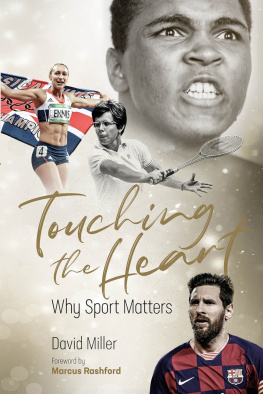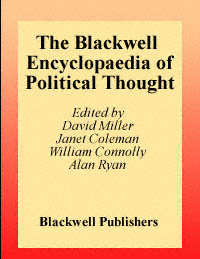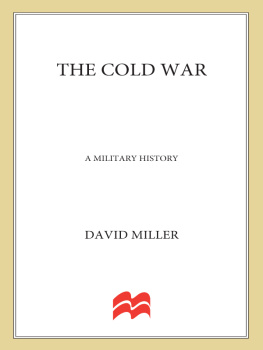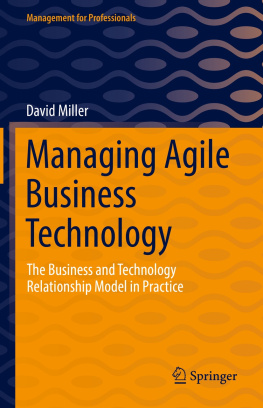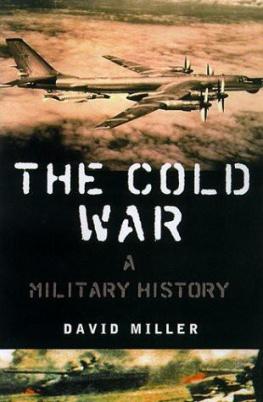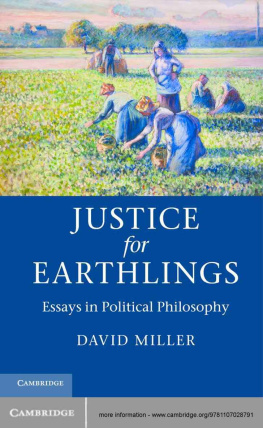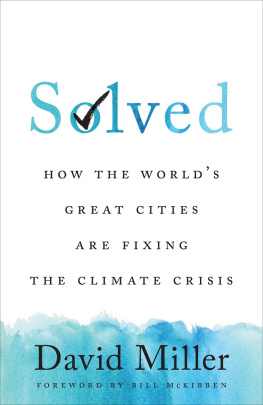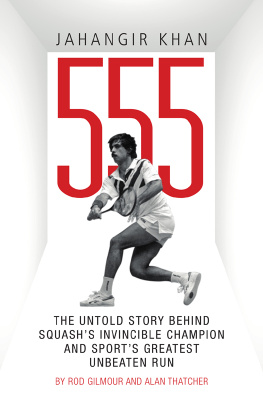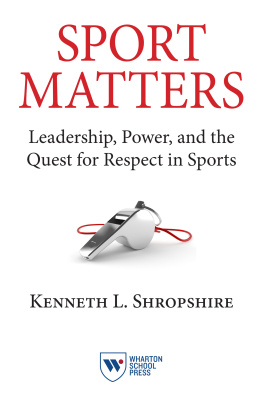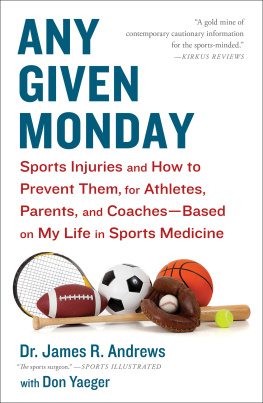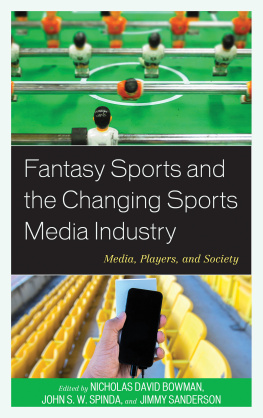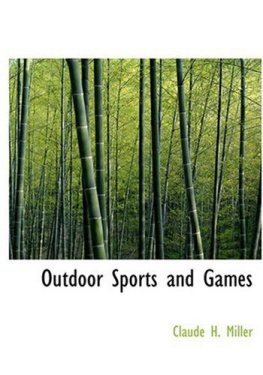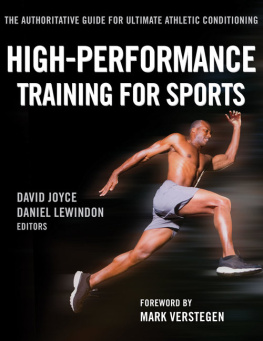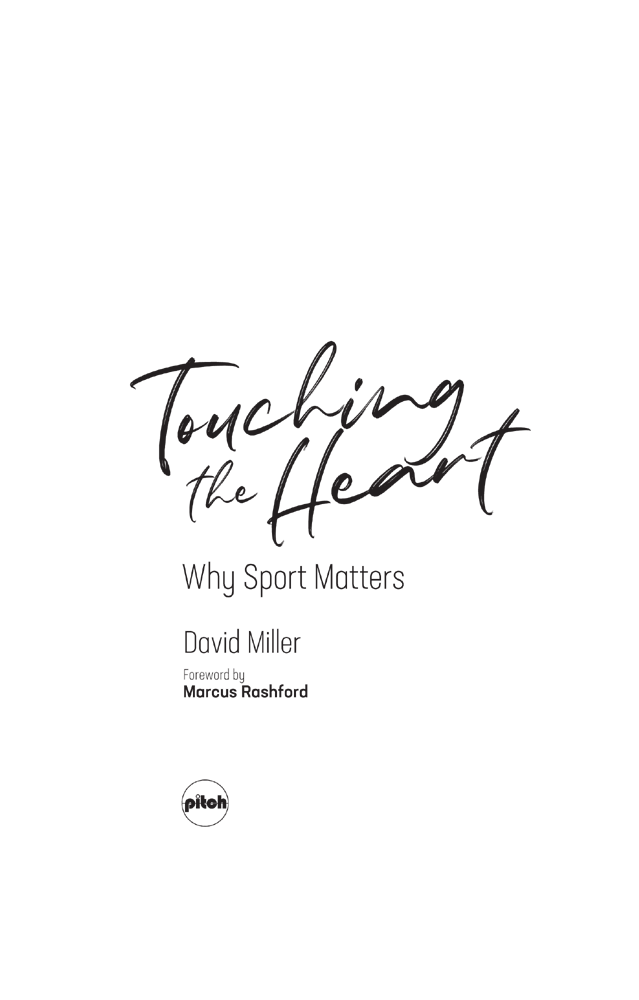Contents
Guide
First published by Pitch Publishing, 2021
Pitch Publishing
A2 Yeoman Gate
Yeoman Way
Durrington
BN13 3QZ
www.pitchpublishing.co.uk
David Miller, 2021
Every effort has been made to trace the copyright.
Any oversight will be rectified in future editions at the earliest opportunity by the publisher.
All rights reserved under International and Pan-American Copyright Conventions. By payment of the required fees, you have been granted the non-exclusive, non-transferable right to access and read the text of this e-book on-screen. No part of this text may be reproduced, transmitted, downloaded, decompiled, reverse-engineered, or stored in or introduced into any information storage and retrieval system, in any form or by any means, whether electronic or mechanical, now known or hereinafter invented, without the express written permission of the Publisher.
A CIP catalogue record is available for this book from the British Library
Print ISBN 9781801500128
eBook ISBN 9781801500418
--
eBook Conversion by www.eBookPartnership.com
Contents
FOREWORD
MARCUS RASHFORD MBE
Im incredibly proud to call myself a footballer, to call football my profession. That round ball is one of the most consistent realities Ive ever enjoyed in my life. That one opportunity Ive found which offered me purpose, structure, discipline: all vital for a child who grew up in what might be referred to as an under-privileged community. That ball provided an avenue out of difficulty, not just for me, but my family too.
For many, football is the most common language we all can speak. It has the ability to bring people from all walks of life together as one. I have been privileged enough to experience the broadest available geography lesson through my professional football career: visiting places I couldnt have ever imagined. Ive met people from different cultures, races and religions, learnt something different from every one of them. The game has this rare ability to bring people together without the need to say a word. Thereby, football offers a sense of belonging.
Ive stood on a seat at the Stretford End of Old Trafford as a child, trying my best to see the fullest of the action. Absorbing every moment, that feeling of unity and freedom which is so difficult to recreate elsewhere. In that stadium, alongside 74,000 other emotional fans, I felt part of something special. Today I still feel that, but it has become a sense of pride, able to play an active role in that collective passion, that mutual investment of commitment and community.
Sport, and football in particular, is something spontaneous. Success is built from mistakes, its adventurous: more importantly, its togetherness. Sport teaches us how to handle success, to handle failure. Sport can fill a void in us that might be blind to the masses. Its our escape, our common language, belonging.
Sport has also offered me a voice, a platform where that voice can be heard, which speaks for many who are speaking but not being heard. Sport has the power to influence positive change, truly a force to be reckoned with in society at large, especially for deprived children. Sport is my everything. My identity. My forever story. The remorse will remain from that missed penalty for England against Italy, letting everyone down. I long to compensate by helping win the World Cup once more in 2022.
With his seven decades experience in sport, from 12-year-old inter-county schools XI, internationally respected David Miller illustrates just why sport does indeed matter to all of us.
PREFACE
Success? Enduring repeated failure, maintaining enthusiasm.
Winston Churchill
As political frictions rupture global equilibrium in China, Hong Kong, North Korea, Myanmar, Yemen, Iran, Syria, Ethiopia, Belarus, Brazil, Mexico, the USA and elsewhere, and COVID-19 has ravaged every nation, sport not only professional events but the many millions who enjoy, and need, leisure expression has been repressed.
Yet the truth is that one of the prime iniquities of the 20th century, South Africas apartheid regime, was driven towards resolution partially on account of the influence of the Olympic Games. As a journalist for The Times, I closely followed the negotiations, from 198991, by the IOCs special Apartheid Commission, appointed by then-president Juan Antonio Samaranch, to achieve South Africas return to the Olympic arena in 1992 after an exclusion of 28 years a springboard towards a free democracy. At the heart of this political jigsaw were clandestine meetings with Nelson Mandela, released from Robben Island prison after 27 years, dehumanising for an African National Congress rebel. I was there on the occasion of strategic deliberations in Ulundi, Kwazulu, as the tide of social revolution utilised the catalyst of sport.
It was a privileged private moment when, on an afternoon in Johannesburg in 1995, as South Africa were about to meet New Zealand in the Rugby World Cup Final, I was introduced to President Mandela by Joe Pamensky, president of South Africas by now multi-racial cricket union. In the briefest informal conversation, the transformative national leader elected the previous year confided, I am hopeful that today will be remembered as a landmark in our new liberated nation. Later, presentation of the trophy to Francois Pienaar once an emblematic white, now converted democrat was confirmation. My rollercoaster journey through countless stadia, embassies and conferences has involved me in many stories, many exchanges with notable leaders reflecting on the relevance of sport.
Nelson Mandela, president of South Africa 199499, Nobel Peace Prize winner 1993, in celebration of South Africas hosting of the Rugby Union World Cup 1995 and prospective FIFAs World Cup 2010:
Sport has the power to change the world the power to inspire. It has the momentum to unite people in a way that little else does. It speaks to youth in a language they understand. Sport can create hope where once there was only despair. It is more influential than governments in breaking down racial barriers.
Thomas Bach, ninth president of the International Olympic Committee, maintaining the IOCs global cache, upholding Tokyos postponed Olympic Games:
Athletes personify how sport touches our hearts. Lofty pinnacles, application, emotion, their joy, their tears as in the Olympic Games. The beauty of sport is its universality: humanity shares its emotions, sport transcending all boundaries. Current extraordinary times have revealed that the role of sport has never been more important. As we grapple with a health crisis, and divisions within and among nations widen, sport offers hope, individually and collectively. Sport is a low-cost, high-impact opportunity assisting all countries, rich or poor, in reaching long-term objectives, and sustaining health. The Olympic Games are the only event that embraces the world in peaceful competition. When all 206 NOCs and the IOC Refugee Olympic Team gather, this ignites a message of shared diversity. Athletes reveal the values of excellence, friendship, respect and solidarity: through competitors, simultaneously coexisting under one roof, free of discrimination, bound by the same rules regardless of social background, gender, religion or political belief. All are equal. Sport reminds us that co-ordinated humanity can be more coherent than all the forces which emerge dividing us.

